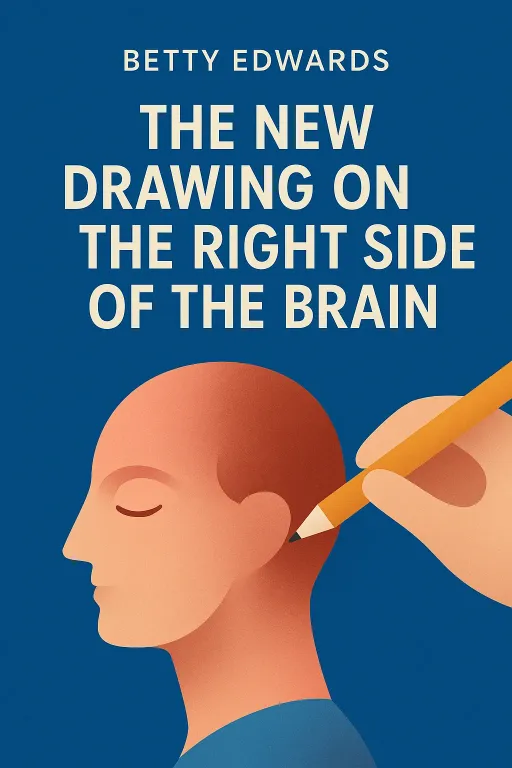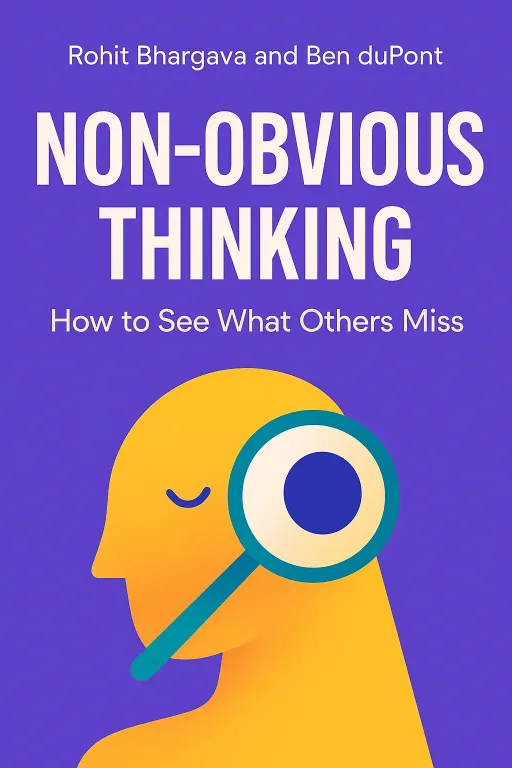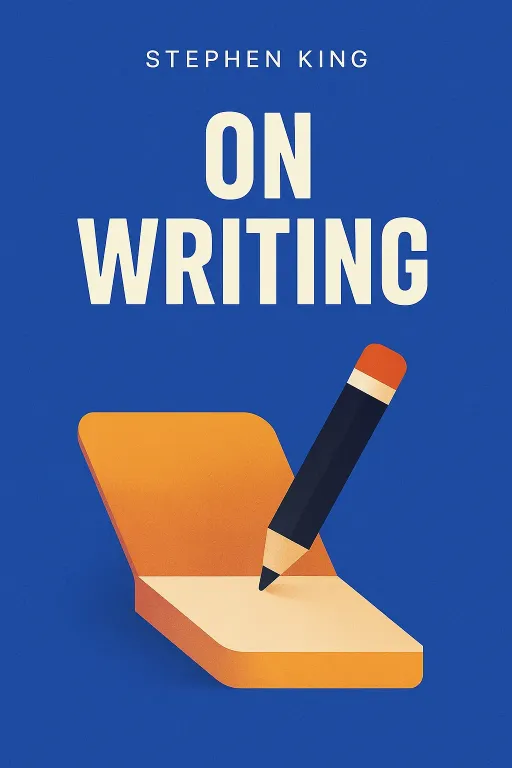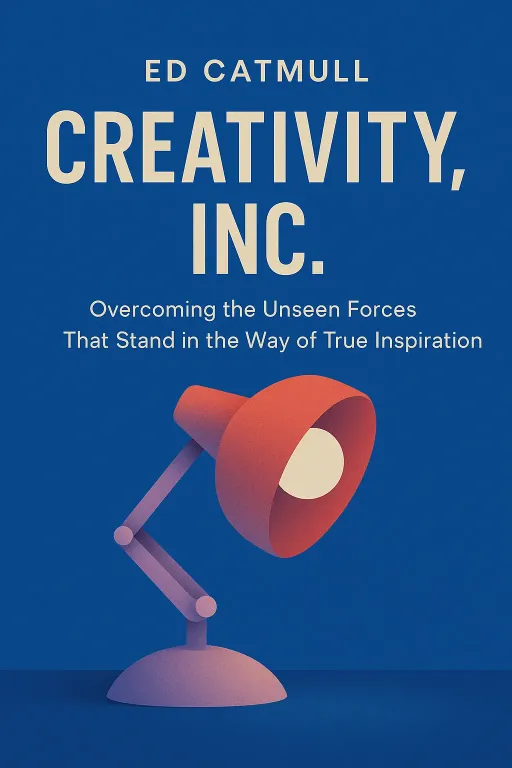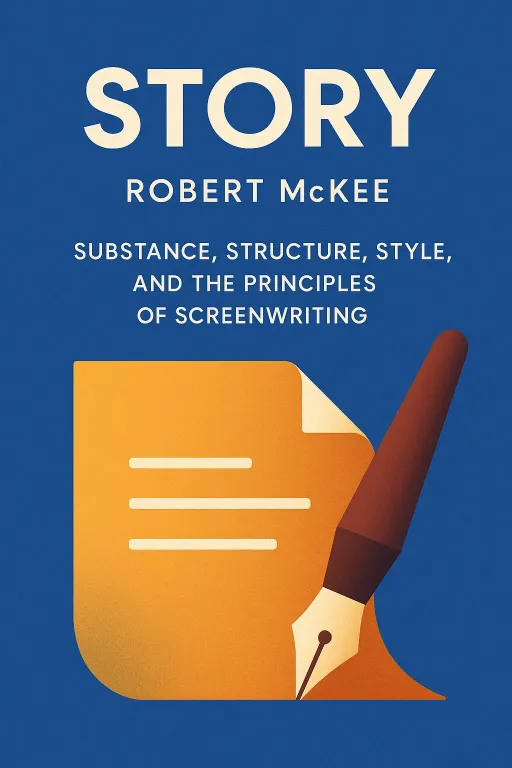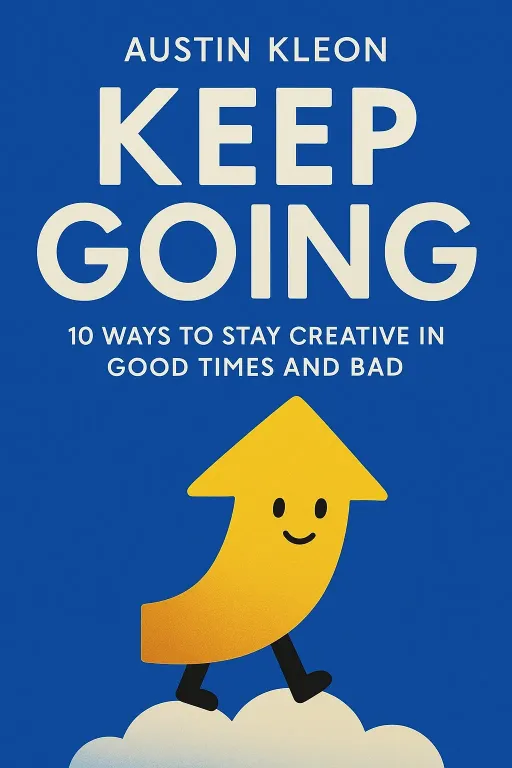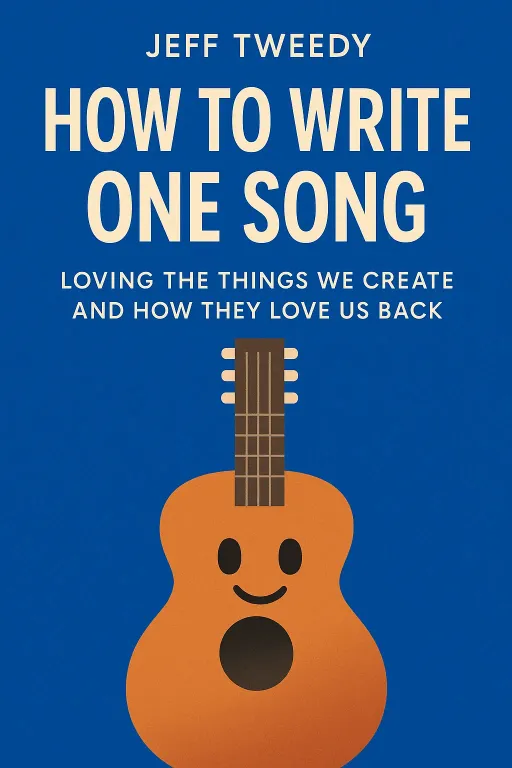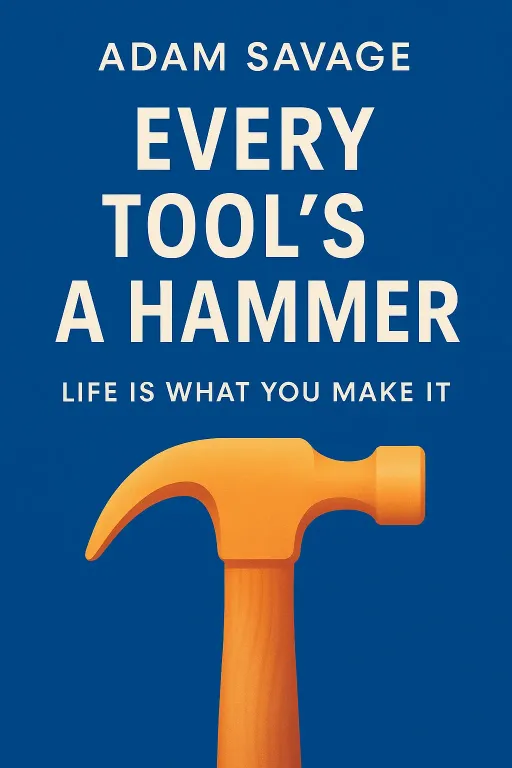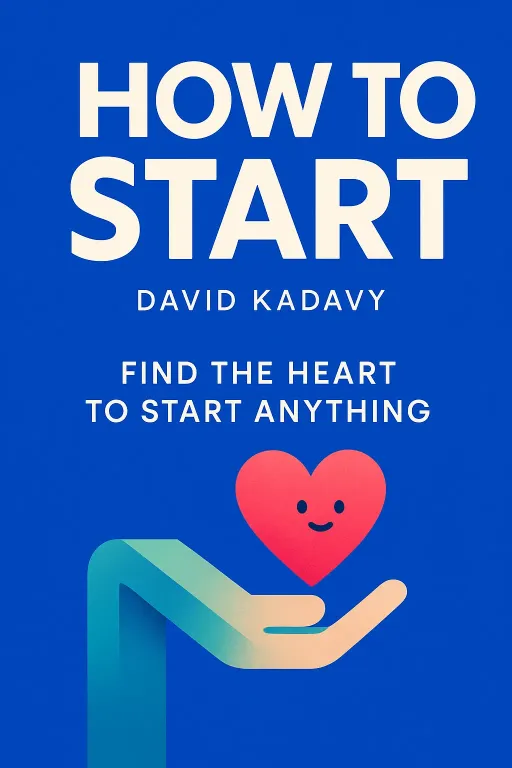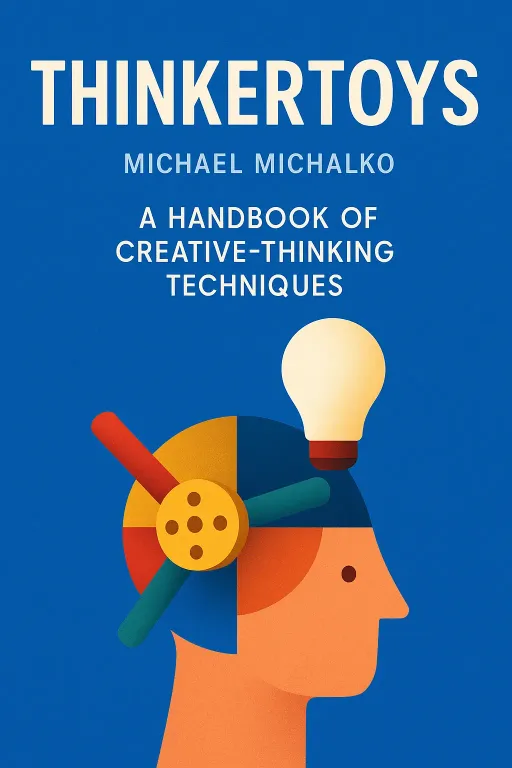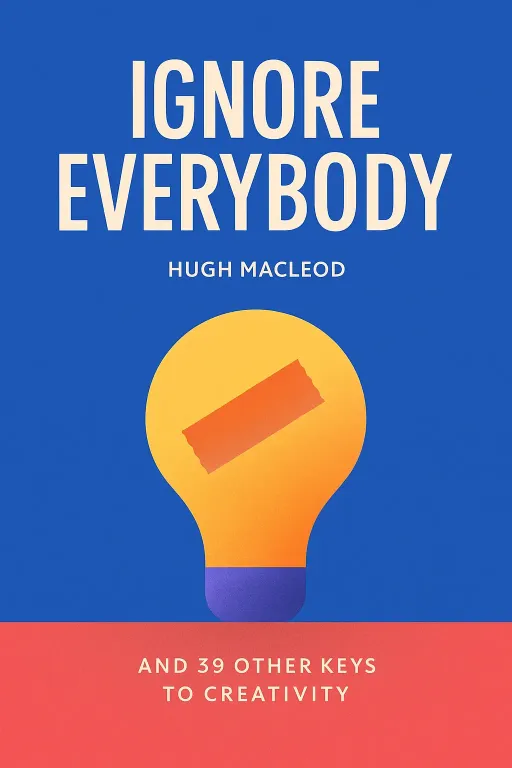
Ignore Everybody
9 minAnd 39 Other Keys to Creativity
Introduction
Narrator: Imagine a young, ambitious creative, full of innovative ideas, arriving in a big city with dreams of making it as an artist, a writer, or an entrepreneur. This person, let's call him Ted, follows the well-trodden path, doing what everyone else does to get noticed. But after five, then ten years of struggle, Ted finds himself tending bar, his initial passion now just a flickering ember of a dream. He followed the crowd, and the crowd led him nowhere. What if the secret to creative success isn't about joining the crowd, but avoiding it altogether?
In his book, Ignore Everybody: And 39 Other Keys to Creativity, author and cartoonist Hugh MacLeod offers a brutally honest and unconventional guide for anyone trying to bring a new idea into the world. He argues that the path to genuine creativity and success is paved with lonely childhoods, personal sovereignty, and the courage to take power, not wait for it to be given.
Good Ideas Have Lonely Childhoods
Key Insight 1
Narrator: MacLeod's central thesis is that the more original an idea, the more likely it is to be met with resistance, skepticism, and poor advice. This is because truly new ideas don't fit into existing frameworks. They challenge the status quo and, as MacLeod puts it, they "alter the power balance in relationships." This is why they are almost always initially resisted.
He shares his own experience with this phenomenon. Years ago, he came up with the idea of drawing cartoons on the back of business cards. It was a unique, personal format. But when he shared it with people, the feedback was overwhelmingly negative. They didn't get it. They told him it was unconventional and suggested he pursue something more digestible, like greeting cards. But MacLeod had a strong gut feeling. He chose to ignore everybody and pursue the idea anyway, a decision that ultimately defined his career. This experience taught him a crucial lesson: you can't rely on external validation for a new idea, because no one, not even you, knows if it's any good at first. The most you can hope for is a strong gut feeling, and you have to be willing to protect that feeling from a world that doesn't understand it yet.
The Sex & Cash Theory
Key Insight 2
Narrator: A common piece of advice for creatives is to quit their day job and pursue their passion full-time. MacLeod argues this is often a terrible idea. Instead, he presents what he calls "The Sex & Cash Theory," a fundamental duality that every creative person must manage. The theory states that you have two kinds of jobs. The first is the one that feeds your soul, the sexy, creative work you're passionate about. This is the "Sex." The second is the one that pays the bills. This is the "Cash."
This tension will always exist. To illustrate, MacLeod points to a photographer named Phil in New York. Phil takes on low-paying but creatively fulfilling assignments for hipster magazines to build his portfolio. That’s the "Sex." He then leverages that impressive portfolio to secure high-paying, less-inspiring commercial work, like shooting retail catalogs. That’s the "Cash." One feeds the other. Keeping a day job, or a "Cash" job, provides the financial stability that gives you the freedom to be truly creative in your "Sex" work. It removes the pressure to make your art commercially viable, which paradoxically makes it more likely to be authentic and, eventually, successful.
Talent Needs Stamina, Not Props
Key Insight 3
Narrator: In a world obsessed with shortcuts and gear, MacLeod insists that ninety percent of what separates successful people from failed people is simply time, effort, and stamina. He believes that if someone in your industry is more successful than you, it's probably because they work harder at it.
He tells a story he calls the "Business Card Doodle Wars." People often ask him if he's worried about someone copying his simple cartoon-on-a-business-card format. His answer is always no. While the idea seems simple, he has spent years and thousands of hours honing his craft. The sheer volume of his work, driven by his love for it, creates a competitive advantage that is nearly impossible to replicate. He challenges anyone to try and overtake him, knowing the immense dedication required.
This ties into his idea of "pillars." He argues that the more talented someone is, the less they need props. Second-rate creators often hide behind fancy equipment, expensive offices, or impressive job titles. These are "pillars" used to prop up a lack of genuine skill. Truly successful people are good at spotting and getting rid of these pillars, focusing instead on the work itself. As MacLeod says, there is no correlation between creativity and equipment ownership.
Avoid Crowds by Creating Your Own Market
Key Insight 4
Narrator: MacLeod offers a stark warning against following conventional paths, encapsulated in the story of "Ted," the aspiring artist who ends up a disillusioned bartender. Ted failed not because he lacked passion, but because his plan was the same as millions of others. He tried to stand out in a crowd, which is a losing game. The real key, MacLeod argues, is to avoid crowds altogether.
Your plan for success should be as unique as your creative work. Instead of competing in an existing market, you should aim to create a new one. This is exactly what MacLeod did. When he started drawing cartoons on the back of business cards, he had no commercial agenda. He was working a corporate job and did it in the evenings for his own amusement. This gave him complete creative freedom. He wasn't trying to please a client or fit into an established artistic norm. Because his plan was unique and nobody else was doing it, it was scary, but it was also exciting. That freedom and originality are what eventually led to his commercial success, proving that blind faith in an oversubscribed myth will only hinder you.
Power Is Taken, Not Given
Key Insight 5
Narrator: One of the most potent ideas in the book is that you cannot wait for someone to give you permission to be great. Power is never given; it is taken. The moment you become truly ready to do your work, you stop dreaming about "becoming" and start "doing."
MacLeod learned this lesson early on from a cartoon editor at the famous London humor magazine, Punch. The editor showed him a letter from a long-established, once-famous cartoonist who was begging to be published. The editor dismissed it with contempt, calling it "another whiny letter" and a perfect example of "how not to get published." The lesson was clear: desperation is unattractive and ineffective. The best way to get approval is not to need it.
The alternative is to assert your value. MacLeod tells the story of an aspiring sportswriter who, instead of pleading for a chance, walks into an editor's office and confidently declares, "Hi, I'm the best frickin' sportswriter on the planet." And somehow, the editor is convinced. This isn't about arrogance; it's about a palpable sense of readiness. It's the self-belief that you have the power to do the work, and you're not asking for a handout. You are simply there to do what you were meant to do.
Conclusion
Narrator: The single most important takeaway from Ignore Everybody is the concept of creative sovereignty. True creativity isn't about finding the right formula, getting the right equipment, or receiving approval from the right people. It's about building the internal fortitude to trust your own vision, even when no one else does, and having the discipline to do the work regardless of the outcome. It's about separating your need for creative expression from your need to pay the bills, so that one doesn't corrupt the other.
Ultimately, MacLeod’s work is a challenge to embrace the messy, uncertain, and often lonely reality of the creative journey. He reminds us that every choice has a price, whether you "sell out" or not. The hardest part is navigating the space between idealism and cynicism, which is, in the end, simply the act of being human. The book's final message condenses this complex journey into a simple, powerful mantra: "Work hard. Keep at it. Live simply and quietly. Remain humble. Stay positive. Create your own luck. Be nice. Be polite."
